You are getting Electric Shocks from light switches because loose connections or damaged wires can leak electrical current and cause shock when the switch is turned on or off.
Suppose the electrical system is not grounded correctly. In that case, it can cause an electrical charge to build up in the switch, leading to a shock.
If the insulation around the wires is damaged or degraded, it can lead to a surprise when the switch is touched.
Why Did Light Switch Shock Me?
If you have been shocked by a light switch, you might wonder what could be causing it. These are why you might be experiencing electric shocks from light switches, and I provided practical solutions to fix them.
Wiring Issues
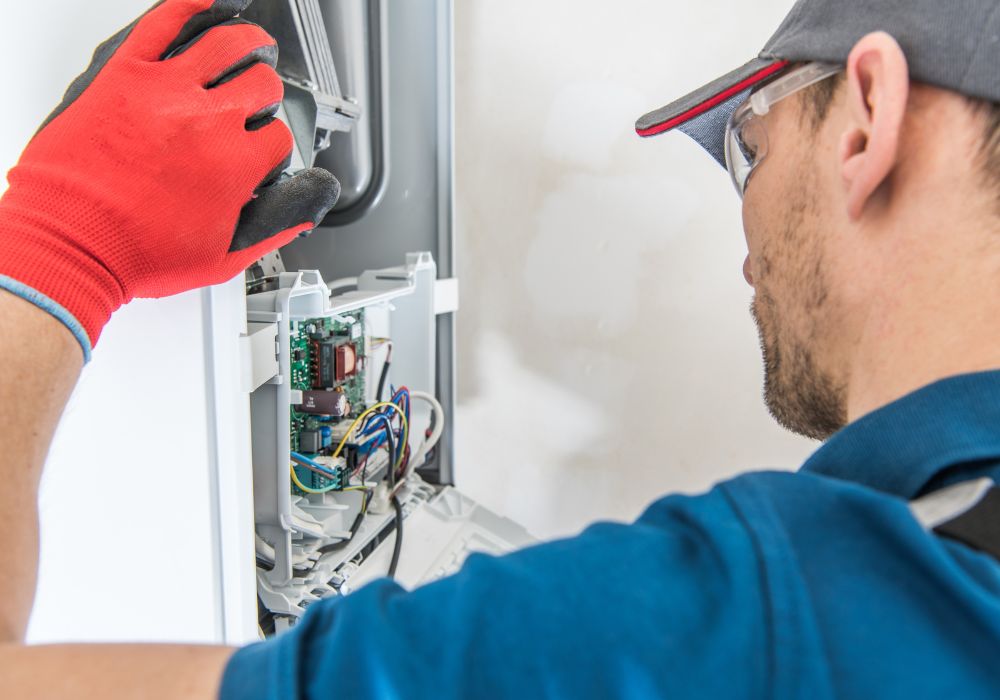
Wiring issues are among the most common reasons for electric shocks from light switches. Loose connections, damaged wires, or incorrect wiring can lead to electrical current leakage and shock when the switch is turned on or off.
For example, assume the wires inside the switch are not correctly connected. In that case, an electrical current can arc between the wires and cause a shock similarly if the insulation around the cables is damaged. Then, the electrical current can escape and cause a surprise when the switch is touched.
To fix this issue, you can turn off the power to the switch and check for loose connections or damaged wires. Tightening connections or replacing damaged wires often solves the problem.
Grounding Issues
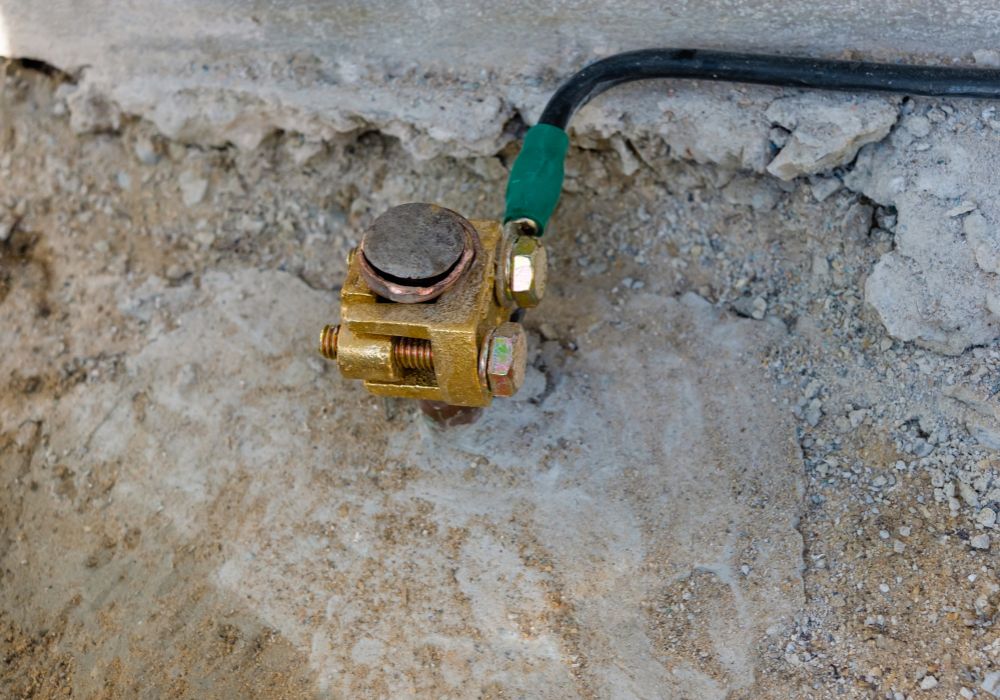
Another possible reason for electric shocks from light switches is grounding issues. Given that the electrical system is not adequately grounded. It can cause an electrical charge to build up in the switch, resulting in a shock.
If the electrical circuit in your home is not grounded correctly, it can cause a static charge to build up in the switch.
When the button is touched, the static charge can discharge and result in a shock. To fix grounding issues, an electrician should inspect your electrical system and ensure it is properly grounded.
Insulation Issues
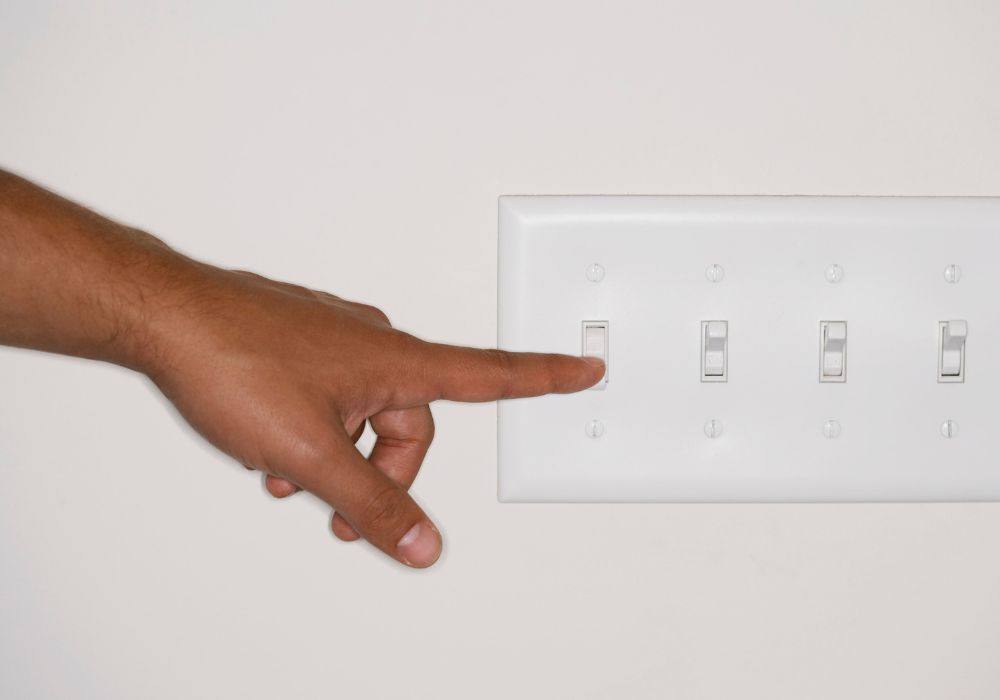
Lastly, insulation issues can also cause electric shocks from light switches. If the insulation around the wires is damaged or degraded, it can lead to a shock when the switch is touched.
For example, suppose the insulation on the wires inside the switch is cracked or worn away. In that case, the electrical current can escape and cause a shock.
Similarly, suppose the insulation around the wires in the walls is damaged. It can lead to electrical current leakage and shock.
To fix insulation issues, turn off the switch’s power and carefully inspect the wires for damage. If you find damaged wires, they should be replaced by a qualified electrician.
Electric shocks from light switches can be a shocking and uncomfortable experience. However, understanding why they occur and taking the necessary steps to fix the underlying issues can ensure a safer and more comfortable electrical system in your home.
How Can I Fix a Light Switch That Shocks Me?
Experiencing electric shocks from a light switch can be a frustrating and uncomfortable experience. Fortunately, fixing the issue is often a straightforward process.
Here are ways to improve a light switch that shocks you, including troubleshooting tips and practical solutions.
- Check for Loose Connections
The first step in troubleshooting a light switch that shocks you is to check for loose connections. Over time, the wires inside the switch can become loose, leading to electrical current leakage and a shock.
To check for loose connections, turn off the power to the button and remove the cover plate. Inspect the wires inside the switch and tighten any loose connections.
- Inspect the Wiring
If tightening connections does not solve the issue, the next step is to inspect the wiring. Damaged or frayed wires can cause electrical current leakage and result in a shock.
Inspect the wires inside the switch for any signs of damage or wear. If you find any damaged wires, they should be replaced by a qualified electrician.
- Check the Grounding
Another possible cause of a light switch that shocks you is a grounding issue. Suppose the electrical system is not grounded correctly.
In that case, it can cause an electrical charge to build up in the switch, resulting in a shock. An electrician should inspect your electrical system to monitor the grounding and ensure it is properly grounded.
- Replace the Switch
If the troubleshooting tips do not solve the issue, you may need to replace the light switch. Over time, controls can wear out and become damaged, leading to electrical current leakage and a shock.
To replace the switch, turn off the power to the switch and remove the cover plate. Carefully remove the switch and replace it with a new one.
- Call an Electrician
If you are uncomfortable troubleshooting or replacing the light switch yourself, or if the issue persists despite your efforts, you should call a qualified electrician.
A professional can inspect your electrical system and identify and fix any underlying issues.
What Happens If You Get Shocked By a Light Switch?
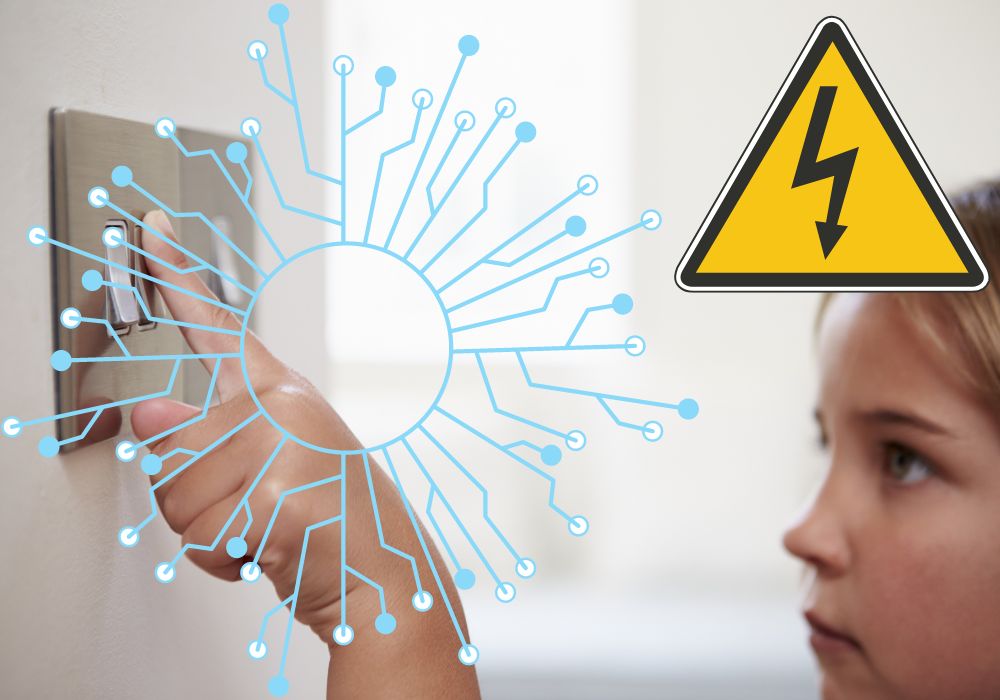
Getting shocked by a light switch is not only an uncomfortable experience but can also be potentially dangerous.
Some common symptoms of electrical shock include a tingling sensation, muscle spasms, burns, difficulty breathing, and unconsciousness.
The Severity of an Electrical Shock
The severity of an electrical shock depends on the voltage and current. These are the electrical current that passes through the body and the duration of the shock.
For example, a shock from a 9-volt battery may be uncomfortable but unlikely to cause serious injury. On the other hand, a shock from a high-voltage power line can be dangerous.
The severity of the shock can also depend on the path that the electrical current takes through the body. The shock can be much more severe if the current passes through the vital organ.
Electrical shock can cause various health problems, from minor injuries to life-threatening conditions. In addition to the immediate effects of the shock, electrical shock can also cause long-term damage to the nervous system, internal organs, and other body systems.
Repeated exposure to electrical shock can cause nerve damage, muscle weakness, numbness, and tingling. Electrical shock can also cause damage to internal organs which can lead to long-term health problems.
Why Is There a Spark When I Turn On My Light Switch?
Have you ever noticed a tiny spark when you turn on your switches? You might have wondered why this happens and are concerned about its potential danger.
What causes the spark when turning on a light switch?
- Initial Surge of Current. When you turn on a light switch, an initial surge of current flows through the circuit to the light bulb. This current surge can create a spark if there is a small gap between the switch contacts.
- Arcing. Another cause of the spark is arcing. Arcing occurs when the switch contacts are not aligned perfectly, causing the electricity to jump across the small gap between them. This creates a visible spark.
Can a Shock From a Light Switch Kill You?
A shock from a light switch is unlikely to kill you. But, it can still be dangerous, especially if you have a pre-existing medical condition.
You may feel a slight shock or tingle when you touch a light switch. This is because there is a small electrical current that is flowing through the switch. The current is usually not strong enough to cause serious harm but can be uncomfortable or startling.
In rare cases, a shock from a light switch can be dangerous. For example, a shock could interfere with its function if you have a pacemaker or other medical device that relies on electrical signals. A surprise could also trigger an irregular heartbeat if you have a heart condition.
Can You Get Shocked Unplugging Something?
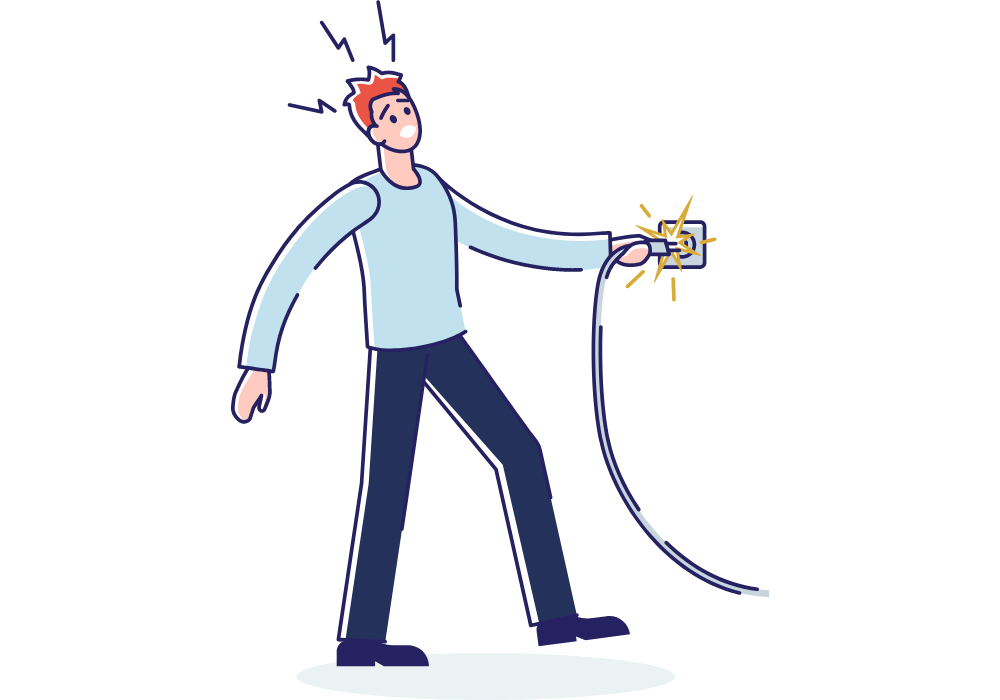
Yes, it is possible to get shocked when unplugging something. The risk of shock increases if the plug is damaged or there is a loose connection. When you unplug an appliance or device, you are essentially breaking the electrical circuit.
This can cause a tiny spark, which is normal. However, you can receive a shock if you touch the plug’s metal prongs while it’s still connected to the outlet.
To avoid getting shocked while unplugging something, it’s important to follow these few basic safety guidelines:
- Always turn off the appliance or device before unplugging it.
- Use both hands to grip the plug and pull it straight out of the outlet.
- Avoid pulling out the cord. This can damage the plug and increase the risk of shock.
- Inspect the plug before unplugging it, and avoid using it if it appears damaged or worn.
You should seek medical attention immediately if the shock is severe or if you experience any unusual symptoms such as chest pain, difficulty breathing, or irregular heartbeat.









